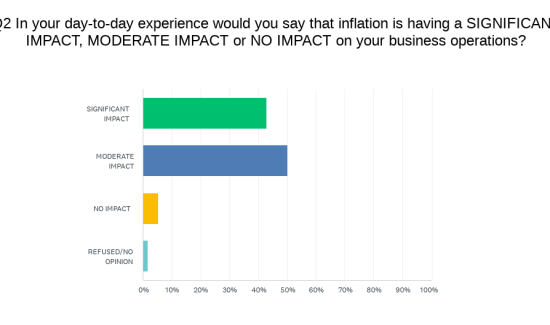Remembering Arlen Specter on the Warren Commission’s 60th Anniversary

This year marks the 60th anniversary of the assassination of President John F. Kennedy. The assassination remains one of the most debated controversies in American history. Was Lee Harvey Oswald a single lone nut, or was there a conspiracy involving Cuba, the Mafia, or even America’s own CIA?
Over my long career, I’ve met so many fascinating people. When I oversaw programming at Talk Radio 1210 WPHT, Philadelphia, I met and had regular discussions with one of Pennsylvania’s political giants, Arlen Specter. In 2012, we talked about creating a special on JFK’s assassination to coincide with the 50th anniversary of Kennedy’s death in 2013. Unfortunately, Specter passed away later that year before we could record anything.
Specter was well-known in Pennsylvania. I have no doubt that many people will smile as I recall some of my conversations with him, as mine will match their own or cause them to recollect their discussions with Specter.
Specter could be a curmudgeon. He was known to be cantankerous or peevish. He also had a quick wit and a tremendous dry sense of humor. Sometimes, he would deliver a line so deadpan that it would take a minute to realize he was joking. Specter did stand-up comedy on several occasions. He was wicked smart. There was virtually no subject that he couldn’t engage in a high-level conversation about. Above all, Specter was a great storyteller.
My purpose is neither to confirm the Warren Commission’s finding that Oswald was the lone assassin and that there was no conspiracy nor to disagree with its conclusion and imply that any of the alternative theories are true.
As we mark the 60th anniversary of the assassination of JFK, I’m looking back at what Arlen Specter told me. I reconstructed some of the stories Specter told me about his work on the Warren Commission from notes I took over a decade ago. I have avoided using quotation marks as I did not record our conversations. My notes are often in shorthand. Through the years, I can’t be certain of his exact quotes, but what I’ve attributed to Specter is close.
In 1963, Specter was an assistant district attorney in Philadelphia. He recalled receiving a call from Howard Willens, his law school classmate and Robert Kennedy’s deputy at the Department of Justice. Willens was calling to see if Specter was interested in joining a commission to investigate the assassination of JFK chaired by the Chief Justice of the Supreme Court, Earl Warren.
At first, Specter wasn’t interested, but at the New Year’s party he attended and talked about it with his wife Joan and friends, he decided he would accept.
At the first meeting with the entire group that became the Warren Commission, he recalled Chief Justice Warren, or the Chief as he referred to him, telling them their client was the truth. Their mission and obligation was to find the truth.
Specter insisted the Commission did not start with the preconceived notion that Oswald was the assassin. We did not know where the investigation would lead, he said. The Commission considered all the evidence before reaching its conclusions. He was quick to point out that there are 26 volumes and 17,000 pages of evidence, exhibits, and testimony is all in the public record.
Specter buckled at the term “single bullet theory.” He referred to it as “the single bullet conclusion.” It was the conclusion of the Warren Commission.
Initially, before the Commission conducted its extensive investigation, the preliminary thought was that one bullet passed through the president’s neck, a second bullet caused Governor Connally’s injuries, and a third hit the president in the head.
Specter proposed the idea that one bullet struck the president and Governor Connally after the testimony of Dr. James Humes, who supervised JFK’s autopsy. Humes said, based on x-rays and physical examination, the bullet may not have struck bones in Kennedy and continued to Connally. Specter thought it might explain where the first bullet that hit Kennedy went.
The shot that caused the wound to the president’s throat had to hit somebody in the limo, or it would have landed somewhere in the vehicle, which was examined in minute detail, but no bullet was found.
The Commission concluded that the probability was that one bullet entered the president’s back and exited his throat, continuing through the Governor’s chest and wrist before coming to rest in his left thigh. Later, it was discovered on Connally’s stretcher at Parkland Hospital.
FBI tests and other analyses showed that this was indeed possible.
Specter went into detail about the evidence, which includes the direction of the fibers on Kennedy’s and Connally’s clothing that showed the path of the bullet.
He explains the initial doctors’ reports that didn’t have all the information. The Parkland doctors never turned Kennedy over. Their work stopped when Kennedy was pronounced dead. They didn’t probe wounds irrelevant to their attempts to save the president. During the autopsy, the doctors didn’t realize that the damage to JFK’s neck was from a tracheotomy and not singularly caused by a bullet. When all the information was gathered, it showed the actual path of the bullet, which entered the back and exited through the throat.
Specter stresses that the single bullet isn’t central to the Commission’s finding that Oswald acted alone.
Specter gets his hackles up at the mention of Oliver Stone’s movie “JFK.” Specter said he only saw the movie when a primary challenger was accusing me of misconduct on the Warren Commission based on Stone’s erroneous assertions in the movie.
Specter told me he saw a lawyer about suing Stone and had a pretty good case, but he had too much going on at the time. In the end, he decided to let it go.
The bitterness had not dissipated two decades later. Specter was adamant that Stone’s movie did more to distort history and the work of the Warren Commission than any other single work. Specifically, he objected to the cutting from color to period newsreel footage mixed with grainy black-and-white film and the implication that it was historical footage.
The movie, Specter exclaimed, was from beginning to end, Falsitas et mendacia! (the Latin phrase for falsehoods and lies, he explained).
For example, if Kennedy and Connally were seated, as shown in the movie’s courtroom scene, it would have taken a magic bullet. Stone shows Connally positioned at the same level and directly in front of JFK. Specter points out, as easily seen in photographs, Connally was in a jumpseat to the left and below Kennedy. Seen through a scope from the sixth-floor window of the Texas Book Depository, as all the Commissioners did, it was easy to see how the shot lined up.
In the movie, Stone represented Oswald as a poor shot. In fact, he scored above average — very good for a Marine — and would have an excellent shot compared to the average American of the era. It also was not a difficult shot. He also misstated the time frame and the distance.
Specter would tick off all the issues with the movie. It’s easy for the conspiracist theorists to poke holes in one part of the Commission’s report. The Commission had the advantage of access to everything. We had literally thousands of pieces of information that we could overlay, he told me. Skeptics look at one incident or parts of the evidence. When you put everything together, as the Commission did, it became clear that, even if you don’t accept the single bullet, Lee Harvey Oswald was the lone assassin, and there was no conspiracy.
Specter points out that in nearly 50 years (at the time we spoke), nobody has ever proved:
- Another gunman.
- Another shot was fired.
- Found another shell casing.
- Found another bullet.
- Anybody involved in a conspiracy.
For all the talk about the grassy knoll and the fence, nobody ever saw anybody there, and that includes Secret Service agents on the overpass.
RFK was privy to every bit of information the Commission had. Was JFK’s brother part of the conspiracy?
It’s hard to prove a negative – that something didn’t happen – sighed Specter. Despite all the theories, nobody has found any actual evidence that shows anybody else was involved in the assassination of President Kennedy.
I remember asking Specter if he had any regrets or if the Commission should have done anything different. He nodded and said that you can always see things to improve upon when you look back.
He thought that having the photos and X-rays to corroborate the single bullet would have been helpful. Also, using the FBI to conduct tests added to the skepticism. In hindsight, the Commission should have used independent organizations instead of governmental agencies to do all our testing and analysis. He thought, and argued at the time, that the Commission should have interviewed Mrs. Kennedy and LBJ. Specter was careful to add that he didn’t believe that LBJ had anything to do with the assassination. Still, both were eyewitnesses and, therefore, should have been interviewed like all other witnesses.
I have always been curious why there is so much skepticism over the JFK assassination. Specter cited varied reasons. Starting with the opportunist and obsessed conspiracy theorists who, with the help of irresponsible publishers, have taken advantage of the passion people have for JFK and Camelot.
Some people don’t believe the United States sent astronauts to walk on the moon. There are new theories about the assassination of Abraham Lincoln 150 years later. I suppose people will still be talking about November 22, 1963, a hundred years from now, Specter added philosophically.
Consider the times. It was the Cold War, and relations with Cuba and Russia were quite tense. Oswald’s story intertwined with Cuba and Russia, leading to doubts. The assassinations of RFK and Martin Luther King Jr. added to the skepticism.
Fundamentally, it seemed impossible that a man so significant and vital as John F. Kennedy was taken down by somebody as inconsequential and inferior as Lee Harvey Oswald. Many need to believe something more preponderant and sinister is culpable.
Specter told me about his work on the Warren Commission as the 50th anniversary of JFK’s assassination approached. A decade later, as we commemorate the 60th anniversary, I think about my initial discussions with Specter as we laid out ideas for a show where he would tell his stories. I regret that we never got to record Specter’s voice sharing his memories about his contributions to the Warren Commission, especially his explanation of the Single Bullet Conclusion.
I have shared a fraction of what Arlen Specter, member of the Warren Commission, Philadelphia DA, and five-term Senator from Pennsylvania, a fascinating, brilliant man and a captivating storyteller, told me over the year that we met regularly.
Andy Bloom is President of Andy Bloom Communications. He specializes in media training and political communications. He has programmed legendary stations including WIP, WPHT, WYSP/Philadelphia, KLSX, Los Angeles, and WCCO Minneapolis. He was Vice President of Programming for Emmis International, Greater Media Inc., and Coleman Research. Andy also served as communications director for Rep. Michael R. Turner (R-Ohio). He can be reached by email at [email protected] or you can follow him on Twitter @AndyBloomCom.





